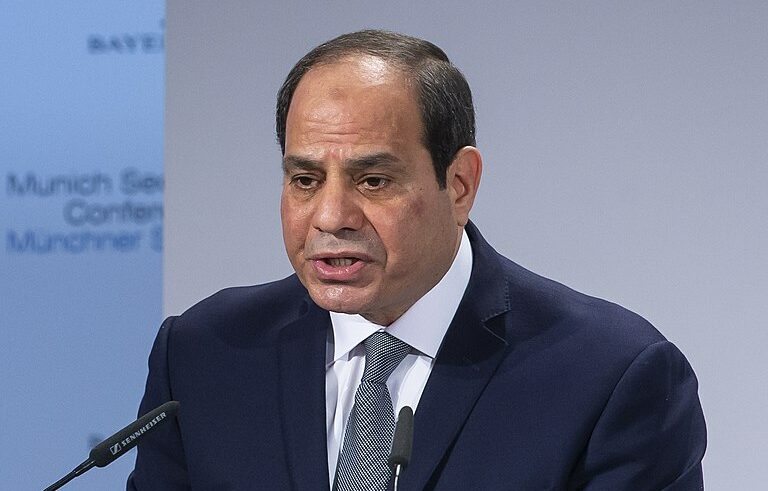Elections in Egypt, what will happen to the economy

State of the economy and political issues. Giuseppe Dentice's analysis for CeSI on the elections in Egypt
Between 10 and 12 December, approximately 67 million eligible Egyptians (at home and abroad) were called to the polls to elect the President of the Republic of Egypt. According to forecasts, Abdel Fattah al-Sisi should be confirmed with a very large majority and would remain in office until 2030. A plausible victory for al-Sisi both due to the low standard of his challengers and the real lack of competition between the candidates, being these characters are almost unknown in the country and, in a certain sense, "dropped from above" and "chosen" to represent the opposition. The latter had long announced their decision to abandon the vote and focused their attention – especially after the arrest on 7 November of Ahmed al-Tantawi, the only real challenger to the President in office – on the concrete possibility of fraud. This situation is also linked to the widespread international accusations of violation of human rights and personal freedoms and, more generally, of the involution of any democratic process in the country.
THE UNCERTAIN DATA OF A PREDICTABLE RESULT
Beyond the predictable results, the only salient political element that this election may present will be the turnout data as this factor could show a certain discontinuity if it were to occur below a certain threshold tolerated by the regime. In fact, in the latest surveys of 2018, the official turnout figure was 41.5%, although many observers – including independent ones – considered this element significantly lower in reality.
Therefore, a reading lower than the already low threshold of 2018 could be interpreted by the opposition as a critical element in terms of lack of affection and participation in the life of the State. Therefore, this could be interpreted as a factor of weakness and potential fragility of the Egyptian system which is experiencing a season of turbulence on multiple fronts, domestic and external.
THE ECONOMIC DIFFICULTIES OF EGYPT
The vote, in fact, comes at a time of great difficulty for the national economy, with 1/3 of the almost 109 million Egyptians living below or just above the poverty line of two dollars a day established by the United Nations, a foreign debt of over 165 billion dollars, a currency heavily devalued by half its value compared to the dollar and with galloping inflation (today just under 38% on an annual basis), burdened by high energy prices and growing on imports, particularly food imports.
An overall condition of economic and social crisis that led the country to have to resort to the fourth loan in less than ten years worth 3 billion dollars from the International Monetary Fund (IMF) – of which it is the second global debtor after Argentina ; added to this are Cairo's negotiations with the IMF to finance a further aid fund of 5 billion dollars, necessary especially now that Egypt is experiencing a serious condition also accentuated by the war in Gaza. An emergency partly mitigated by the aid – no longer unconditional as in the past – from the Arab monarchies of the Gulf, which have paid almost 30 billion dollars in assistance funds to Cairo into Egyptian coffers.
THE REGIONAL CONTEXT
Added to this are the growing critical issues deriving from a highly critical external regional framework characterized not only by the conflict between Israel and Hamas, with all its humanitarian and security implications for the Sinai Peninsula, but also by the strategic impacts linked to navigation and to royalties from the Suez Canal. Likewise, the instabilities coming from nearby borders such as Libya and Sudan, realities already affected by previous crisis situations, should not be underestimated.
It is no coincidence that the obvious domestic fragility has already had some impacts on Egypt's ambitions and desire for regional and international projection in its theaters of interest, yet without having completely weakened its capacity for action. Proof of this is the case of the war between Israel and Hamas in Gaza, where Cairo has proposed its traditional role as mediator and any development in the armed conflict, as well as on a diplomatic level, cannot take place without its fundamental approval . Furthermore, the North African country also remains essential to allow international organizations to enter Gaza – via the Rafah crossing – to provide aid to the Palestinian civilian population of the Strip.
Precisely this peculiarity has been exploited (both internally and by international partners) as a clear quid pro quo to define a sort of compromise in the problems that beset Cairo: an eminent role as a key player in the management of the humanitarian crisis in Gaza in exchange for a relief of the foreign debt contracted with international creditors or in the receipt of further aid from the IMF. In fact, the economic-financial crash, the negotiations with the Washington Institute, the tensions along the borders and the numerous external pressures (from the USA and the allied Gulf monarchies) to try to take the country along a sustainable path of reforms have shown some ripples within the Egyptian plan, especially in the peculiar internal dialectic of the regime between the Presidency of the Republic and the Egyptian Armed Forces, which have revealed, in some cases, different opinions on how to intervene in the domestic crisis and prevent harmful impacts on stability and security of the state.
In conclusion, the presidential election in Egypt will not present substantial innovations, but will represent a fundamental test for the establishment in power, especially in the direct management of the post-voting phase, as it is in those spaces that many of the impacts will be defined politicians of the country's near future.
(Article published on the CeSI website)
This is a machine translation from Italian language of a post published on Start Magazine at the URL https://www.startmag.it/mondo/elezioni-egitto/ on Sat, 16 Dec 2023 06:06:46 +0000.
